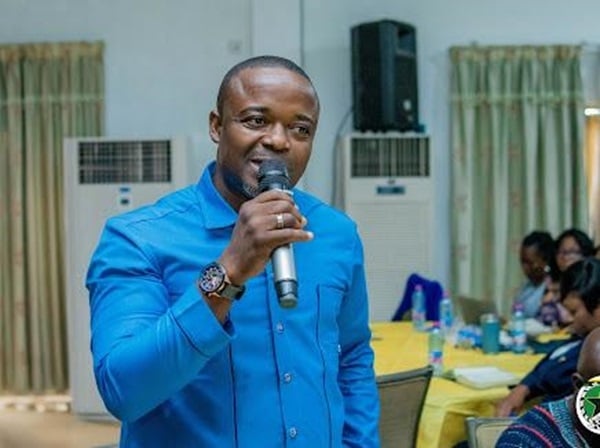Ghana’s inaugural Republic National Thanksgiving Day, observed on July 1st, provided a platform for both celebration and sober reflection. Alfred Asiedu Adjei, President of the National Association of Local Authorities of Ghana (NALAG), commended Ghana’s democratic progress while simultaneously issuing a stark warning regarding the escalating political instability in neighboring Togo. He emphasized the need for proactive intervention by regional bodies like ECOWAS, urging them to address the erosion of democratic norms before they culminate in violent upheavals. He criticized the reactive nature of these organizations, which often respond only after coups have occurred, rather than addressing the underlying issues that contribute to political instability. Mr. Adjei’s message resonated with a call for preemptive action, emphasizing the importance of upholding democratic principles and preventing the subversion of constitutional processes.
Mr. Asiedu Adjei highlighted Ghana’s successful 2001 power transition from President Jerry John Rawlings to John Agyekum Kufuor as a pivotal moment in the nation’s democratic journey. This peaceful transfer of power, once doubted by many, solidified Ghana’s commitment to democratic values and set a precedent for subsequent transitions. Since then, Ghana has witnessed five peaceful handovers of power, a remarkable achievement in a continent often plagued by political turmoil. This consistent adherence to democratic principles has cemented Ghana’s position as a beacon of stability and a role model for other African nations. Mr. Adjei attributed this success to the collective will of the Ghanaian people and the maturity displayed by its political leaders.
In contrast to Ghana’s democratic progress, Mr. Adjei expressed deep concern about the political climate in Togo. He criticized recent constitutional amendments that pave the way for President Faure Gnassingbé’s potential indefinite rule, labeling it “authoritarianism under a democratic disguise.” He lamented the silence of regional and continental bodies like ECOWAS and the African Union, accusing them of complacency in the face of creeping authoritarianism. This inaction, he argued, emboldens leaders who manipulate democratic processes for their own gain and undermines the credibility of these organizations as defenders of democracy. Mr. Adjei stressed that true leadership necessitates proactive engagement and a commitment to upholding democratic principles, not merely reacting to crises after they erupt.
Directly addressing President Gnassingbé, Mr. Adjei urged him to prioritize legacy over longevity, emphasizing that true greatness lies not in the duration of one’s rule but in the positive impact left on the nation. He cautioned against the long-term consequences of unchecked political manipulation, which can erode a nation’s stability and credibility. He appealed to the Togolese people to remain resilient in their pursuit of freedom, advocating for peaceful yet determined resistance against any attempts to suppress their rights. He emphasized the growing awareness and empowerment of African youth, urging them to channel their frustrations constructively and resist manipulation by those seeking to exploit their discontent.
Mr. Asiedu Adjei’s message extended beyond regional concerns to a broader call for global action. He challenged ECOWAS, the AU, and international diplomatic stakeholders to demonstrate true leadership by actively engaging in Togo’s political situation. He called for concrete actions, including high-level visits, mediation efforts, and public statements, to prevent Togo from descending further into authoritarianism. He argued that silence in the face of such blatant disregard for democratic principles constitutes complicity and undermines the credibility of these organizations. He stressed the urgency of the situation, urging immediate intervention to prevent Togo from joining the growing list of West African nations grappling with unconstitutional power grabs.
Finally, Mr. Asiedu Adjei reminded Ghanaians and all Africans that Ghana’s democratic achievements should not be a source of complacency but a call to action. He urged solidarity with those struggling for freedom and democracy across the continent, from Togo and Sudan to the Congo and beyond. He emphasized that true progress in Africa requires not just slogans and rhetoric but the establishment of robust democratic systems and institutions. He called for a collective effort to ensure that the peace and stability enjoyed by Ghana become a reality for all African nations. This, he argued, is the true measure of Africa’s rise – a continent where democracy thrives, and the rights of all citizens are respected and protected.


